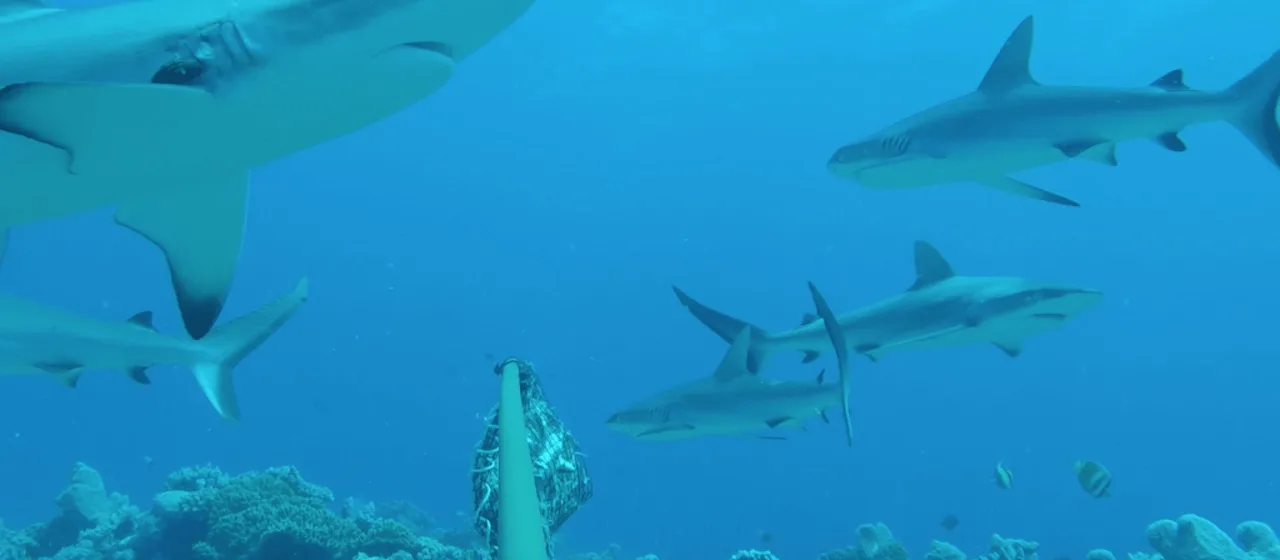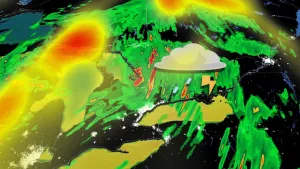
Sharks snagging fish off anglers' lines, study to find the felons
The goal of the study isn't to retaliate against sharks, but rather to find an ideal solution for coexistence with them in their natural habitat.
Most anglers have a tale or two of the "one that got away," and for many in Florida, this has become quite a common occurrence. But maybe not for the usual reasons you may think of.
In fact, the angling enthusiasts are having a battle with sharks over the fish -- while they are still on their lines as they attempt to reel them in. Shark depredation, which involves the act of a shark consuming a fish fully or partially before the angler can get it out of the water, is a progressively common frustration to millions of recreational anglers in Florida waters every year.
Leisure fishing in Florida is a year-round operation that generated 88,501 jobs and more than $9 billion in revenue in 2019, according to Florida Atlantic University (FAU).
SEE ALSO: Major hurricanes can't scare this shark species, study says
So, to find a possible resolution, a study will be conducted by the Harbor Branch Oceanographic Institute at FAU and Mississippi State University. Scientists will attempt to determine which species of sharks are the predominant offenders of the snatchings, what types of fish are being targeted most and where the thefts occur.
To help with the study, scientists have been given a grant from the National Oceanic and Atmospheric Administration (NOAA).

Researchers will utilize onboard surveys, videos, genetic analyses and social media to obtain data that will generate to magnitude needed to evaluate the commonness of shark depredation in recreational fisheries.
“Few studies have quantified the impact of depredation in recreational fisheries,” said Matt Ajemian, principal investigator, assistant research professor, and director of The Fisheries Ecology and Conservation Lab at FAU Harbor Branch, in a news release.
“Incorporating fishermen’s knowledge into a scientific process gives them more confidence in scientific results, promotes trust, and more importantly, increases the quantity and quality of data. We hope to develop a deeper understanding of the specific concerns and beliefs inherent to this stakeholder group.”
STUDY TO INVOLVE NEW FORENSIC APPROACH
Those involved in the study also will use a recently introduced forensic method to identify sharks by swabbing the bites left on target fish the anglers reeled in.
The approach, developed by Marcus Drymon, an assistant extension professor from Mississippi State University, involved obtaining leftover DNA from the shark’s mouth, which is then analyzed at a laboratory utilizing meta-barcoding.

Capt. Tom Guoba holds a red snapper (Lutjanus campechanus), caught in the north-central Gulf of Mexico (offshore Alabama) that was partially consumed by a shark. (David Hay Jones)
“An additional benefit of this approach is that it directly involves the angler who has experienced depredation in the research process, thus fostering trust and buy-in,” said Drymon, in the media release. “These co-operative surveys will occur with several local fishing charters located along Florida’s Atlantic coast throughout the project period, assessing shark impacts in both bottom and pelagic recreational fisheries.”
The research is also involving the use of social media. In 2020, Ajemian’s group worked with a Facebook group of anglers who posted their photos and videos of depredation incidents on the platform.
The group received about 300 submissions in a short time, mostly from Florida's east coast. Researchers examined the entries and identified depredated fish species based on submitted text and/or visuals, and the fishing method.
INCREASE IN DEPREDATION A SIGN OF SHARK POPULATION GROWTH?
The mission of the study isn't to retaliate against sharks, but rather to find an ideal solution for coexistence with them in their natural habitat.
In fact, some experts believe the increase in shark depredation is due to successful conservation efforts.
“Now that these conservation actions have been put in place, and these management plans have been put in place, what we’re actually seeing is something more natural, [and healthier],” Lauran Brewster, a senior research fellow at the FAU Harbor Branch Oceanographic Institute, told the Sun-Sentinel.
“We need to learn how to respond to that without retaliating against a species that’s just living where it’s supposed to live.”
Thumbnail courtesy of Global FinPrint.
Follow Nathan Howes on Twitter.










